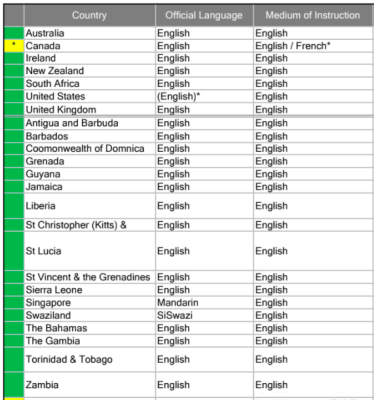CELTA, Teach, TEFL, TESOL, Travel abroad
Why is it always, native speakers required?

There are various factors that contribute to the challenges faced by non-native English speakers in securing jobs as English teachers, particularly in countries where English is not the first language. While it’s important to note that there are exceptions and opportunities for non-native English speakers, certain considerations may affect their employability in this field.
One of the key reasons is the preference for native English speakers, primarily due to the assumption that they possess an inherent linguistic and cultural advantages. Many language institutes and schools prioritize hiring teachers from English-speaking countries as it is believed that they can provide an authentic English language experience. This preference is often reinforced by the expectations of students and parents who view native speakers as the ideal language instructors.
Some organizations, like the TEFL Freedom offer Placement Programs, but even we have specific requirements regarding accents and qualifications. The Schools prioritize candidates with clear, neutral accents because it is believed by the schools that students will find it easier to understand and emulate such pronunciation patterns. Similarly, a degree in English, ideally from a recognized institution, is considered an essential criterion to ensure a solid foundation in English language skills and teaching methodology.
However, it is crucial to recognize that language proficiency, teaching skills, and cultural understanding should be prioritized over a person’s nationality or accent.
But in the real world, this isn’t happening, In recent years, however, there has been an increased recognition of the value that non-native English-speaking teachers can bring to the classroom, especially in Japan.  Some schools and institutions have started embracing diversity and exclusivity by actively seeking out qualified non-native English-speaking teachers.
Some schools and institutions have started embracing diversity and exclusivity by actively seeking out qualified non-native English-speaking teachers.
It is worth also noting that the demand for English teachers can vary significantly depending on the location and context. In certain countries or regions, there may be a higher demand for native English speakers due to market preferences, while in others, non-native English speakers may have more opportunities. Additionally, some institutions and programs specifically cater to learners who want to focus on a particular variety of English, such as British English, American English, or Australian English, which may further influence hiring decisions.

So, while there are still barriers for non-native English speakers in securing English teaching jobs, these challenges can be overcome with the right qualifications, such as a degree in English, an Internationally recognized TEFL/TESOL Certificate (It needs to show at least 10 hours practical teaching hours) and teaching experience, language proficiency, and cultural understanding. The demand for English teachers is diverse, and opportunities for non-native speakers are emerging as educational institutions recognize the value of a diverse teaching workforce. Ultimately, it is not down to TEFL Freedom what the preferences are of the schools, but good qualifications, teaching abilities, and clear neural accents and a driving licence seem to be the preferred requirement when selecting non-native English teachers.

